
One of the most significant objective of Zakah is that it seeks to eradicate poverty, the mother of all social problems, (Foto: Onislam).
by : Muhammad Mojlum Khan
Being the most honored in the sight of God, a believer is required to fulfill all his needs, be they material or spiritual, proportionately because such balance in all spheres of one’s life allows one to serve God Almighty most effectively while, at the same time, satisfying one’s worldly needs.
In short the Islamic way of life is a balanced one which, once actualized, creates a society that is not only strict in its observance of the Divine system (Shari’ah) but is also dynamic and prosperous the ideal Islamic society.
In economic terms, however, the Muslim seeks to establish a society where social justice and distributional equity would prevail so that a section of the society does not discriminate and prosper at the expense of the rest of the society.
Also Read: Saudi Arabia Wins Bid to Host World Expo 2030
As a matter of fact, an ideal Islamic society strives to abolish all forms of discrimination, prejudice, class differentiation and provide equal opportunity to all members of the society although, according to some Islamic scholars, Islam does not envision absolute equality insofar as distribution of economic resources among individuals is concerned because, operationally speaking, this simply would not be feasible.
Not surprisingly, whenever the Quran makes a reference pertaining to prayer, it simultaneously refers to Zakah. Here is an example: The institution of Zakah is undoubtedly one of the most widely discussed and analyzed aspects of the Islamic economy. This is perhaps becauseZakah is one of the five principal pillars of Islam along with Shahadah (declaration of faith), Salat (daily prayers), Sawm (Fasting during Ramadan) and Hajj (pilgrimage to Makkah).
إِنَّ الَّذِينَ آمَنُوا وَعَمِلُوا الصَّالِحَاتِ وَأَقَامُوا الصَّلَاةَ وَآتَوُا الزَّكَاةَ لَهُمْ أَجْرُهُمْ عِنْدَ رَبِّهِمْ وَلَا خَوْفٌ عَلَيْهِمْ وَلَا هُمْ يَحْزَنُونَ
Surely they who believe and do good deeds and keep up prayer and pay the poor-rate they shall have their reward from their Lord, and they shall have no fear, nor shall they grieve.(QS: Al-Baqarah 2: 277)
Also Read: 148 Products from Indonesia Promoted at Sarawat Superstore Jeddah
The fact that Zakah is a basic principle of Islam is not in doubt. But the question arises: What is Zakah, and what is its role in an Islamic economy? I will begin with the first part of the question.
What is Zakah?
The Arabic word ‘Zakah’ is generally translated as ‘poor due’ or ‘religious levy’ but literally it means purification, growth, blessing and appreciation. Islamically speaking, however, Zakah is the community’s share in the produced wealth. More specifically, according to M. Umer Chapra, the renowned Islamic economist, Zakat his the financial duty of a Muslim “to pay out of his net worth or agricultural output, if these are higher than the threshold of Zakah, a specified portion as an indispensable part of his religious duties.”
Although some writers mistakenly refer to Zakah as charity, it is not charity. Al-Sadaqah is charity as opposed to Zakah which is a compulsory religious duty conferred by God Almighty upon all Muslims whose wealth exceeds the prescribed limit. If a person’s wealth exceeds that limit, he/she is required to pay the rate of 2½% of total income or wealth to the Bait Al-Mal (the public treasury) annually for the upkeep of the poor and the needy. In the words of the Prophet (peace be on him):
Also Read: Packaging Industry Supports Halal Ecosystem
“Riches (example: Zakah) should be taken from the rich and returned to the poor.”
In short, therefore, in a Muslim State the fortunate Muslims are required to look after their less fortunate brothers and sisters, including the non-Muslim citizens of the State. Having made these preliminary remarks, now we shall consider the institution of Zakah in further detail below.
The Purpose of the Institution of Zakah
وَمَا أُمِرُوا إِلَّا لِيَعْبُدُوا اللَّهَ مُخْلِصِينَ لَهُ الدِّينَ حُنَفَاءَ وَيُقِيمُوا الصَّلَاةَ وَيُؤْتُوا الزَّكَاةَ ۚ وَذَٰلِكَ دِينُ الْقَيِّمَةِ
Also Read: Indonesia-Japan Agree on Energy Transition Cooperation
And they were not enjoined anything except that they should serve Allah, being sincere to Him in obedience, upright, and keep up prayer and pay the poor-rate, and that is the right religion. (QS: Al-Bayyinah : 5)
Being one of the five basic pillars of Islam, Zakah is primarily an act of worship. Whereas prayer also an act of worship is performed by way of reciting, physically posturing and prostrating, Zakah requires one to distribute portions of one’s wealth to the poor, destitute and the needy of the society in obedience to God’s commandment because, according to Islam, all wealth, property and treasures that exist on the earth ultimately belong to God alone.
So although God Almighty is the ultimate owner of all things, He has nonetheless permitted man to utilize the provisions of the earth, but in a just and equitable manner. However, man (being insatiable and acquisitive by nature) has not always utilized them fairly and equitably. Hence, God Almighty ordained Zakah. As such,Zakah in addition to being an act of worship – is also a unique distributive mechanism which seeks to ensure that wealth and property are not expropriated and controlled only by a few people. And that everyone can equally enjoy the provisions and bounties which the earth produces by the Divine will of God, the Exalted in Might.
What is more, Zakah is also a spiritual purifying process, which attempts to suppress man’s unwanted desires and whims, thereby seeking to improve and enhance the human personality. More will be said on this later. To recapitulate, the main purpose of the institution of Zakah is to ensure that the material resources of the earth are fairly and equitably distributed and shared by everyone while, on the other hand, God Almighty has promised to bless and multiply the wealth of those who pay Zakah in obedience to His command. As the Quran states with reference to Prophet Moses and his companions:
Also Read: Dubai Expo 2020 Holds Special Event for Palestine
وَاكْتُبْ لَنَا فِي هَٰذِهِ الدُّنْيَا حَسَنَةً وَفِي الْآخِرَةِ إِنَّا هُدْنَا إِلَيْكَ ۚ قَالَ عَذَابِي أُصِيبُ بِهِ مَنْ أَشَاءُ ۖ وَرَحْمَتِي وَسِعَتْ كُلَّ شَيْءٍ ۚ فَسَأَكْتُبُهَا لِلَّذِينَ يَتَّقُونَ وَيُؤْتُونَ الزَّكَاةَ وَالَّذِينَ هُمْ بِآيَاتِنَا يُؤْمِنُونَ
And ordain for us good in this world´s life and in the hereafter, for surely we turn to Thee. He said: (As for) My chastisement, I will afflict with it whom I please, and My mercy encompasses all things; so I will ordain it (specially) for those who guard (against evil) and pay the poor-rate, and those who believe in Our communications.(QS: Al-A’raf : 156)
The Quran also states:
مَثَلُ الَّذِينَ يُنْفِقُونَ أَمْوَالَهُمْ فِي سَبِيلِ اللَّهِ كَمَثَلِ حَبَّةٍ أَنْبَتَتْ سَبْعَ سَنَابِلَ فِي كُلِّ سُنْبُلَةٍ مِائَةُ حَبَّةٍ ۗ وَاللَّهُ يُضَاعِفُ لِمَنْ يَشَاءُ ۗ وَاللَّهُ وَاسِعٌ عَلِيمٌ
Also Read: Indonesia Increases Excise on Tobacco Products by 2022
The parable of those who spend their property in the way of Allah is as the parable of a grain growing seven ears (with) a hundred grains in every ear; and Allah multiplies for whom He pleases; and Allah is Ample-giving, Knowing. ( QS: Al-Baqarah : 261)
Having briefly explained the main purpose of Zakah, we shall now attempt to elucidate the role of Zakah in an Islamic economy.
The Role of Zakah in Islamic Economy and Society
Since the institution of Zakah is a significant component of the Islamic economy, its role therein is both diverse and far-reaching, not least because Zakah is the pivot of all public finance in Islam. However, for the sake of brevity and simplicity, the role of Zakah within an Islamic economy can be said to cover three spheres, namely the moral sphere, the social sphere and the economic sphere. Let us briefly explain them below.
Also Read: Indonesia to Become the Center of Sharia Economy in 2024
The Moral Sphere
We have already mentioned the fact that the one of the main functions of Zakah is that it instills moral qualities and uprightness in man. Here, however, it is necessary to consider the role of the Zakah insofar as the moral development of the Islamic man is concerned in some detail. According to the Islamic economists, one of the most important roles of Zakahin the Islamic economic order is that it “washes away the greed and acquisitiveness of the rich”, thereby seeking to undermine the excessive and over-zealous wealth accumulative attitude of some elements of the society.
However, I should stress here that Islam is not anti-wealth, so to speak, but, on the contrary, Islam encourages the lawful seeking of wealth. Nevertheless, Islam is against the excessive materialistic attitude which some people tend to exemplify.
Nonetheless, man by nature is a selfish and greedy creature, and as such is rarely content with his lot. The more man is given, the more he craves for. In short, his insatiable self knows no bounds. Referring to such insatiable and acquisitive nature of man, the Quran states:
Also Read: Indonesia to Host World Tourism Day 2022
أَلْهَاكُمُ التَّكَاثُرُ Abundance diverts you,(QS: At-Takaatsur :1), حَتَّىٰ زُرْتُمُ الْمَقَابِرَ Until you come to the graves. (QS: At-Takaatsur :2), كَلَّا سَوْفَ تَعْلَمُونَ No! You are going to know.
(QS: At-Takaatsur :3), ثُمَّ كَلَّا سَوْفَ تَعْلَمُونَ Then no! You are going to know. (QS: At-Takaatsur : 4)
Similarly the Prophet Muhammad (peace be on him) remarked:
“Had there been two mountains of wealth for the son of Adam, he would have sought the third one; nothing but the earth can fill the belly of the son of Adam.” ( H.R. Al-Bukhari)
Also Read: Chinese Companies Begin to Explore Lithium in Afghanistan
In light of this, the role of Zakah in fostering moral qualities and attributes in people in an Islamic society is exceptional because it encourages and also impresses a sense of moral responsibility on the rich to look after the poor and the less fortunate members of the society, thereby seeking to suppress wanton greed, miserliness and selfishness in order to create a society that is caring, loving, equitable and just.
In short, the role played by Zakah in developing and strengthening the moral qualities of “sacrifice and goodness and in suppressing evil qualities of selfishness and greed among the people is no small contribution”.
The Social Sphere
“Islam has created a society more free from widespread cruelty and social oppression than any other society had ever been in the world before.” (H G Wells, The Outline of History)
Also Read: European Union Explores Cooperation in Sustainable Palm Oil Production in Riau
Although the role of Zakah in the Islamic economic order is both diverse and far-reaching, however at the societal level the primary objective of Zakah is to eradicate poverty. And this is a very significant objective which, in my humble opinion, assumes even greater significance considering the fact that some of the wealthier countries in the world happen to be Muslim yet, strangely enough, poverty is rife in the Muslim world. Why?
The simple answer is because in those countries wealth is largely controlled by a group of elites who care less for the poor and the needy. Worse still, these elites also avoid paying Zakah so that the poor and the needy of the society are literally forced to steal or beg for charity. Not surprisingly, the situation in Muslim countries today is both desperate and alarming not only because the elites of those societies prefer not to pay Zakah but because they are flagrantly violating Islamic commandments with regard to the obligation of Zakah.
Perhaps they should ponder over the following words of Caliph Abu Bakr: “By God, I will wage war against those who differentiate between Salat and Zakah.” More importantly, the Prophet (peace be on him) said:
“He is not a true Muslim who eats his full when his next door neighbor is hungry.” (Al-Albani)
Such is the importance of charity and Zakah in Islam.
In short, at the societal level, one of the most significant objective of Zakah is that it seeks to eradicate poverty, the mother of all social problems, by ensuring that the rich live up to their social responsibility by distributing a portion of their wealth and fortune to the poor and the needy of the society at large.
The Economic Sphere
Prophet Muhammad said:
“Whoever offers prayers but does not pay Zakah, his prayers are in vain.” ( H.R. Al-Mundhiri)
Undoubtedly, one of the most significant roles of Zakah in an Islamic economic order is that it “prevents the morbid accumulation of wealth in a few hands and allows it to be diffused before it assumes threatening proportions in the hands of its possessors.” That is to say that Zakah ensures that wealth and property are not expropriated and controlled only by a section of a society to the detriment or total exclusion of rest of the society.
As it happens, Zakah is a distributive mechanism par excellence in that it seeks to establish a society in which wealth, goods and services are both equitably distributed and shared and Muslims care for one another, so that inequity and injustice is eliminated on the one hand while poverty and hunger are alleviated on the other.
The Quran constantly reminds the faithful that God commands justice and the doing of good and avoidance of wrong. Muslims need to return to this message of justice, fairness and equality. And the sooner they do the better. (T/ Imt/R03)
Mi’raj Islamic News Agency (MINA)
Source: Onislam





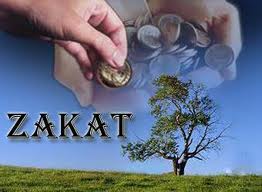





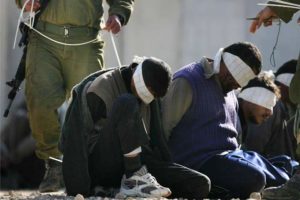

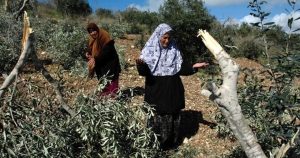

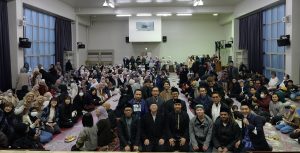


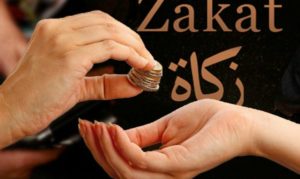
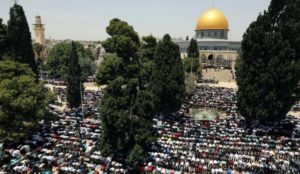













 Mina Indonesia
Mina Indonesia Mina Arabic
Mina Arabic